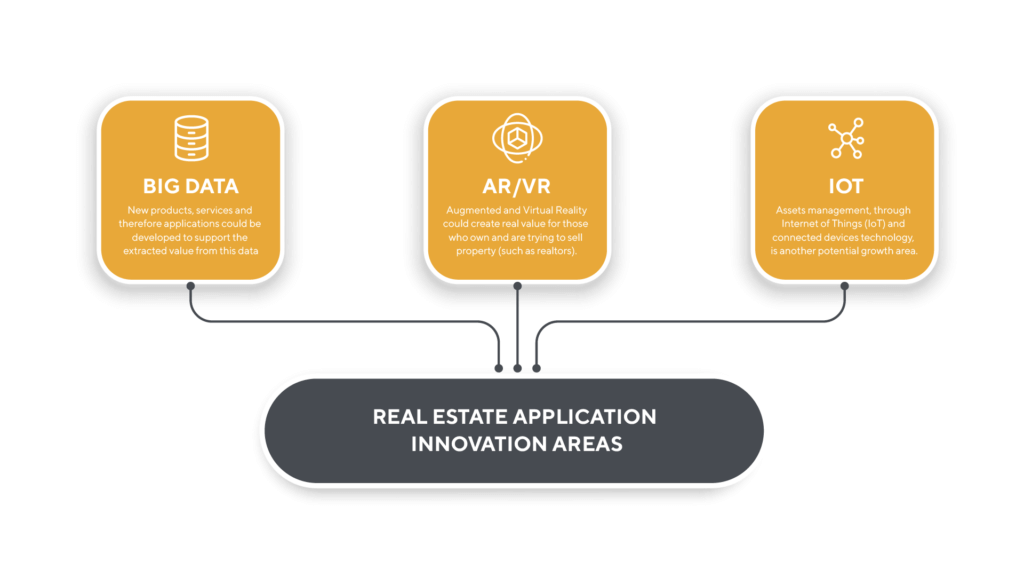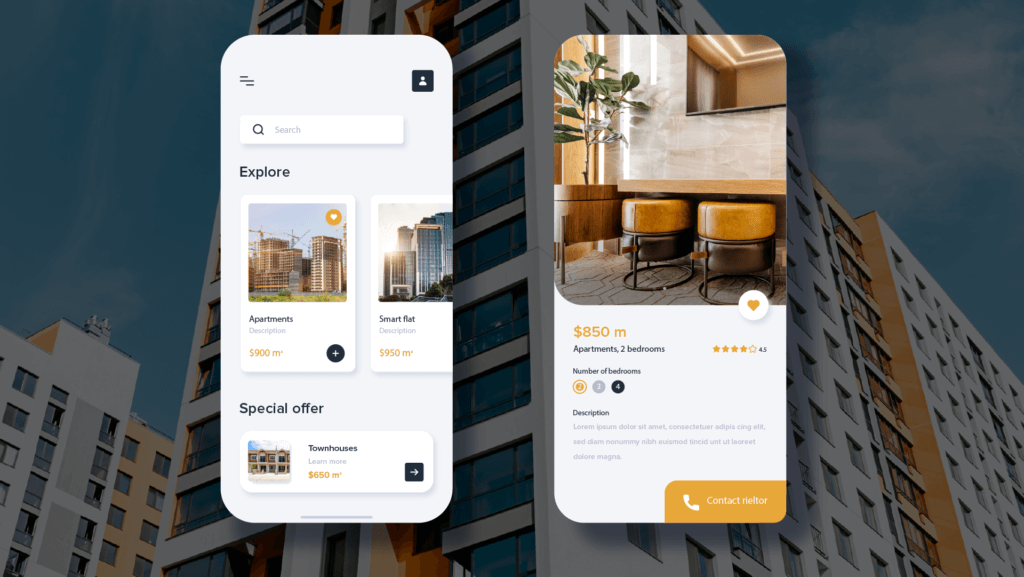Real estate applications, such as Zillow and Trulia, are big business. Real estate, as in property, whether rentals, or homes for sale, or commercial property is the biggest business in the world.
As an asset class, property and real estate dwarfs everything. A home is the most valuable thing the majority of people who can afford to buy one will ever own, as an asset. Rental prices are so high in so many cities and towns around the world that often, as a percentage of someone’s income, it’s a significant expense.
Consequently, when the digital revolution started to disrupt various industries and sectors, real estate was amongst the first. In the early-2000s, platforms started to be developed and launched around the world that would forever change how people search for, view, and buy or rent real estate.
What are real estate applications?
Two of these platforms are Zillow and Trulia. Plus Rightmove, a platform similar to those in the UK, and there are hundreds more around the world, in nearly every country or region. Many are mobile-enabled these days, or have numerous apps across every platform.
The reasons these platforms are so popular is they’re the primary and first port of call when people are looking to buy, sell or rent property. Whenever someone, whether an individual or a family, is looking at moving home, those actions start online and naturally, for the majority of those searching, they find properties listed through the largest of platforms, such as Zillow and Trulia.
Zillow is a massive US-based platform, with several sub-brands, including Trulia. It was founded in 2000, after the first Dotcom boom, when Web 2.0 technology companies were being launched. Now it employees 5,000 people around the world, and has a turnover of $2.7 billion. Trulia started life independent of Zillow, but was bought in $2.5 billion in 2015.
Before these web platforms were launched, searching for real estate involved buying newspapers, and looking at properties in estate agents windows. Both of those things still happen, of course. Although not as much property is listed in newspapers and magazines, except usually higher-end ($1m+) properties aiming to attract a certain affluent audience.
Real estate applications and platforms, such as Zillow and Trulia, are where estate agents (realtors) list properties they are trying to sell, or that are available to rent. Listings include pictures, descriptions, often floor plans, and maps and other location details.

Picture 1. Real estate application.
Details such as, whether pets are allowed, which is an important consideration for renters. Or how close schools are, which is something parents need to know. Or whether there is parking, or the proximity to public transport networks. All of this is incredibly important information when anyone is considering moving, depending on their individual needs and circumstances.
As a customer, you get to find out exactly what a property is like, where it is, and crucially, how much it’s worth, to rent or buy. With this information, you can either view online (with a video walkthrough or in some cases a virtual reality walkthrough), or book with a realtor to view in-person.
Given the scale and popularity of such platforms, you might be wondering how to innovate in the real estate application space?
How to develop a real estate application?
The good news is, real estate is a space that continues to innovate. Even with market-leading platforms, there is an awful lot entrepreneurs can do to create new products, services, and applications in this space.
Known as real estate and property tech (PropTech); there are billions being poured into this sector every year by investors. At present, there are around 2,000 real estate and property-related startups in the U.S., with 53% focused on residential real estate, 38% commercial, and 9% in the retail property segment.
Major centers where you can find such startups include New York, Boston and San Francisco, alongside London, Paris, and Tel Aviv. Perhaps unsurprisingly, these are also the cities with the highest real estate prices, for rentals and buying, and the most valuable commercial real estate. Although startups are often and can be location-independent, this information is worth noting because it’s in those cities where entrepreneurs are more likely to find investors and others with expertise in real estate technology.
When it comes to considering areas that would benefit from new applications and innovation, there is a lot of choice.

Picture 2. Real estate application development.
Real estate application innovation areas
Big Data is a massive growth area. Using existing APIs, startup founders could deploy artificial intelligence (AI) or machine learning (ML) algorithms to extract data and therefore value from the major real estate platforms, such as Zillow and Trulia. New products, services and therefore applications could be developed to support the extracted value from this data.
It isn’t just consumers who could benefit from this data. Owners and managers of real estate portfolios would too. Data-driven insights are powerful tools in so many sectors. With the right combination of data and algorithms, enormous value could be generated for property portfolio owners and managers.
Augmented and Virtual Reality (AR/VR) is another growth area, one that has become more popular and useful since the pandemic. It’s another area that startup founders .
Assets management, through Internet of Things (IoT) and connected devices technology, is another potential growth area. Connected devices sensors, in the right places, would give real estate owners and portfolio managers greater insights over the assets they own. It would also make it considerably easier to repair properties and avoid more costly maintenance being done if owners could be alerted to when work was needed.
However, those are only a few ways you could innovate in the real estate sector. Some familiarity is of course useful, that way you can more easily identify pain points and opportunities.
Once you’ve got specific thoughts on how to solve various pain points, then you can secure investment, develop an MVP version of your product/service, and work with a trusted technology partner, such as LaSoft to create a new real estate application.

Picture 3. Real estate application innovation areas.
LaSoft: Your web and mobile development agency. We are a technology partner you can trust. Get more information today. LaSoft provides a wide range of services, including web and mobile development, product design, management and quality assurance.


